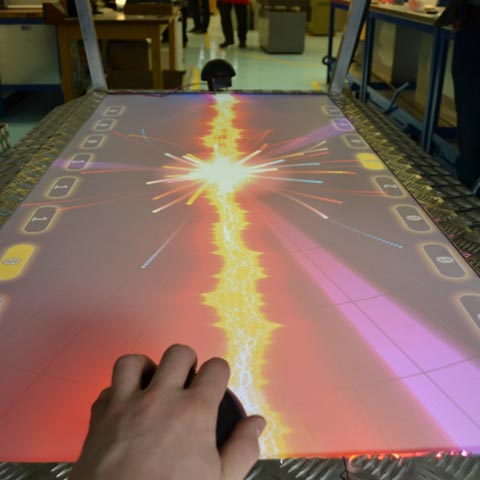Particle physics pinball for Big Bang science fair
03/07/2013 00:00:00

Visitors at this year’s Big Bang Science Fair will get the opportunity to find out more with a new interactive particle pin ball machine that attempts to replicate some of the great work taking place by Physics staff at Lancaster University.
A team of staff and students from the Faculty of Science and Technology at Lancaster will soon be heading down to London to enthuse and engage with thousands of visitors as part of the Big Bang Science Fair 2013.
The event, at the London Excel Arena, will run from Thursday 14 March to Sunday 17 March with more than 65,000 visitors expected. It is the largest celebration of science, technology, engineering and maths for young people in the UK.
This year colleagues from across departments have designed and built a virtual particle pinball machine which combines the skills from Engineering, the technology from the School of Computing and Communications and the science from Physics. It was funded by the University Friends Funding.
“Our particle pinball machine will use state of the art motion sensing technology to create a virtual pinball game that will challenge visitors to collide subatomic particles in the hunt for the Higgs boson,” said Dr Alan Darragh from the Faculty of Science and Technology.
“If contestants can collide particles at the correct energies, elusive Higgs candidate particles might be created but, blink, and they’ll be gone as they decay into other common particles. Action replays controlled by the players will help decide if a Higgs-like particle was briefly created, with successful contestants winning chocolate Nobel Prize medals.”